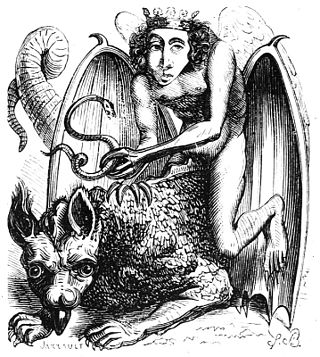
Astaroth, in demonology, was known to be the Great Duke of Hell in the first hierarchy with Beelzebub and Lucifer; he was part of the evil trinity. He is known to be a male figure most likely named after the Near Eastern goddess Astarte.

Bael is a demon described in demonological grimoires such as The Lesser Key of Solomon and the Pseudomonarchia Daemonum and also in the Dictionnaire Infernal. He is described as a hoarsely-voiced king with the power to make men invisible and ruling over sixty-six legions of demons. The Lesser Key of Solomon describes him as appearing in the form of a cat, toad, man, some combination thereof, or other "diverse shapes", while the Pseudomonarchia Daemonum and the Dictionnaire Infernal state that he appears with the heads of a cat, toad, and human simultaneously.
The Lesser Key of Solomon, also known as Lemegeton Clavicula Salomonis or simply Lemegeton, is an anonymously authored grimoire on demonology. It was compiled in the mid-17th century, mostly from materials several centuries older. It is divided into five books: the Ars Goetia, Ars Theurgia-Goetia, Ars Paulina, Ars Almadel, and Ars Notoria. It's based on the Testament of Solomon and the ring mentioned within it that he used to seal demons.
Pseudomonarchia Daemonum, or False Monarchy of Demons, first appears as an Appendix to De praestigiis daemonum (1577) by Johann Weyer. An abridgment of a grimoire similar in nature to the Ars Goetia, it contains a list of demons, and the appropriate hours and rituals to conjure them.

There have been various attempts at the classification of demons within the contexts of classical mythology, demonology, occultism, and Renaissance magic. These classifications may be for purposes of traditional medicine, exorcisms, ceremonial magic, witch-hunts, lessons in morality, folklore, religious ritual, or combinations thereof. Classifications might be according to astrological connections, elemental forms, noble titles, or parallels to the angelic hierarchy; or by association with particular sins, diseases, and other calamities; or by what angel or saint opposes them.
Hecate Enthroned are an English symphonic black metal band initially founded with members from both Wales and England, but are now primarily based around Cheshire, England. The band formed in 1993 as a blackened death metal act under the name Amethyst, changing their name to Daemonum later on. By 1995 the band had adopted the name Hecate Enthroned and a symphonic black metal style.
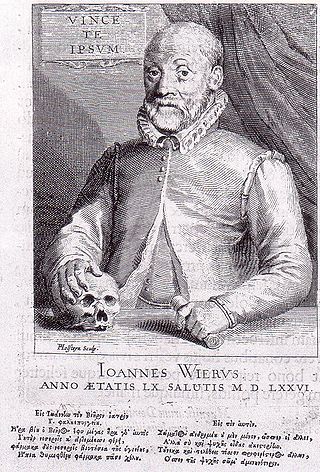
De praestigiis daemonum, translated as On the Tricks of Demons, is a book by medical doctor Johann Weyer, also known as Wier, first published in Basel in 1563. The book argues that witchcraft does not exist and that those who claim to practice it are suffering from delusions, which should be treated as mental illnesses, rather than punished as witchcraft. It was influential in the abolishment of witchcraft trials in the Netherlands.
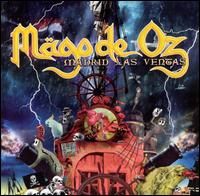
Madrid – Las Ventas is a live album by folk metal artists Mägo de Oz, which was released in 2005.
Cirith Gorgor is a Dutch black metal band that formed in 1993.

Osmose Productions is a French independent record label created in 1991 by Hervé Herbaut, after he had spent three years running a small mail order company. They specialize mainly in death and black metal bands.

Cirith Ungol is an American heavy metal band formed in late 1971 in Ventura, California. This early doom and power metal group is known for lyrics based on fantasy. The band took their name from the mountain pass Cirith Ungol in J. R. R. Tolkien's epic fantasy novel, The Lord of the Rings.
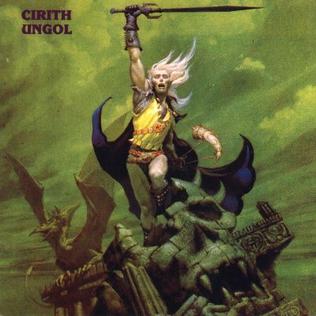
Frost and Fire is the debut album by the American heavy metal band Cirith Ungol. Its music is generally faster and more simplistic than that of King of the Dead, which saw the band begin to adopt a doom metal style influenced heavily by power metal.

Paradise Lost is the fourth studio album by American heavy metal band Cirith Ungol. It was released on August 23, 1991 by Restless Records in the United States, Canada and Greece, and re-released as a bootleg several times. The band broke up in 1992 over unresolved issues with their new record label. It was finally officially re-released in 2007/08 on Noble Rot.

King of the Dead is the second album by the American heavy metal band Cirith Ungol. It was self-produced by the band and released in July 1984 on Enigma Records. It was re-released in September 1999 on Metal Blade Records.

One Foot in Hell is the third studio album by the American heavy metal band Cirith Ungol. The original LP was produced by Brian Slagel and Cirith Ungol. It was released in August 1986 on Metal Blade Records and re-released in March 1999 by Metal Blade Records on CD. Greg Lindstrom said in an interview:
It's an excellent album although I thought the songs overall were not as strong as King of the Dead, and Flint's bass seems to have gotten lost in the mix.

Metal Massacre is a series of compilation albums released through Metal Blade Records. It is famous for "shedding light" on bands such as The Obsessed, Trouble, Overkill, Metal Church, Metallica, Slayer, Virgin Steele, Hellhammer, Voivod, Armored Saint, Lizzy Borden, Possessed and more.
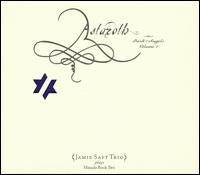
Astaroth: Book of Angels Volume 1 is an album by the Jamie Saft Trio performing compositions from John Zorn's second Masada book, "The Book of Angels".
Falcon is a California heavy metal band formed in 2002 by guitarist/vocalist Perry Grayson. Though active in the 2000s, Falcon's sound is throwback to the late 1960s and early 1970s, and they take their cue from luminaries like Blue Cheer, Black Sabbath, Trapeze, Budgie, Thin Lizzy, Pentagram, Mountain, Free, Bang, Captain Beyond and Buffalo.
Liber Officiorum Spirituum was a demonological grimoire and a major source for Johann Weyer's Pseudomonarchia Daemonum and the Ars Goetia. The original work has not been located, but some derived texts bearing the title have been found, some in the Sloane manuscripts, some in the Folger Shakespeare Library. Each version bears many similarities to each other and to the Pseudomonarchia Daemonum and the Ars Goetia, though they are far from identical.













